On November 23, the Institute of Electrical and Electronics Engineers (IEEE) announced the list of Fellows for the year 2024. The Department of Electrical Engineering and Applied Electronics (EEA), Tsinghua University congratulates faculty members Guo Qinglai, Sun Kai, and Xie Xiaorong, along with alumni Luo Jun (admitted in 1992, 1997), Zhang Fumin (admitted in 1990, 1996), Zhang Di (admitted in 2000, 2004), and Zheng Tongxin (admitted in 1993) on their election.
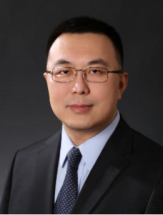
Guo Qinglai
Guo Qinglai, a tenured professor in EEA, is a recipient of the Ministry of Education’s Top-class Talent Program and the Special Prize of the 16th China Youth Science and Technology Award. He serves as the Technical Program Chair of the IEEE PES Energy Internet Coordination Committee and is the joint chair of the IEEE Energy Internet Working Group, Intelligent Grid Voltage Control Working Group, and Cyber-Physical Systems Working Group. He has been or is currently an editorial board member for several international journals, including IEEE Transactions on Power Systems, IEEE Transactions on Smart Grid, and Renewable & Sustainable Energy Review. He is also the Executive Director of the Energy Internet Special Committee of the Chinese Association of Automation and a member of the Energy Internet Special Committee of China Electric Power Society. His research focuses on grid energy management technology, voltage stability and control, cyber-physical systems (CPS), and electric vehicles. He has received numerous awards, including a National Science and Technology Progress Award (First Prize) and a National Technology Invention Award (Second Prize), along with over 10 provincial and ministerial-level science and technology awards. The election recognizes his contributions to the field of system-wide voltage control in power systems.
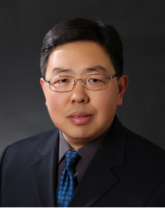
Sun Kai
Sun Kai, a tenured associate professor, special researcher, and assistant dean of EEA, currently serves as the Vice Chair of IEEE PELS Asia-Pacific Region, Chair of IEEE PELS China Area Membership Committee, Secretary General of the Technical Committee on Power Electronics for Grid-Connected Systems of IEEE PELS, and Associate Editor of IEEE Trans. Power Electronics and IEEE Journal of Emerging and Selected Topics in Power Electronics. His primary research areas include power electronics technology in new energy generation systems, multi-energy microgrids, and power distribution networks. He has pioneered a theoretical method and key technology for controlling large-scale photovoltaic/energy storage converters based on DC bus voltage information. He has proposed control technology for hybrid AC/DC microgrid systems based on efficient interconnection converters, and these achievements have been transformed into industrial products and applied in new energy projects in more than 10 countries along the “Belt and Road” initiative. He has received multiple first prizes at the provincial and ministerial levels and IEEE Trans. Power Electronics paper awards, among others. He was elected as an IET Fellow in 2019 and a Distinguished Lecturer by the IEEE Power Electronics Society (PELS) in 2021. The election acknowledges his contributions to power electronics in renewable energy systems and microgrids.

Xie Xiaorong
Xie Xiaorong, a tenured professor in EEA and Vice Dean of the Institute for Carbon Neutrality, is a recipient of the National Distinguished Youth Science Fund. He has long been engaged in research on stability analysis and control of power systems, subsynchronous resonance/oscillation, and the integration of renewable energy into the power grid. Xie has led and participated in several national-level scientific and technological projects. He has proposed a multi-dimensional quantitative analysis theory and machine-network collaborative control method for various forms of subsynchronous oscillations. He has innovated key equipment technologies for the control and protection of subsynchronous oscillations in large steam turbine units and new energy plants, with significant effects. He has published four monographs in his research field, authored over 300 papers, and applied for more than 100 invention patents. He has received a National Science and Technology Progress Award (Second Prize) and over 10 provincial and ministerial-level/industry association first prizes. He serves as an editorial board member for multiple journals, including IEEE Transactions on Power Delivery. He was elected as an IET Fellow and is a member of several IEEE, IEC, and CIGRE working groups. The election recognizes his contributions to the analysis of subsynchronous resonance in electrical power systems.

Luo Jun
Luo Jun earned his bachelor’s and master’s degrees from EEA, Tsinghua University in 1997 and 2000, respectively. In 2006, he obtained his Ph.D. in computer science from the Ecole Polytechnique Federale de Lausanne (EPFL) in Switzerland. He is currently an associate professor in the School of Computer Science and Engineering at Nanyang Technological University, Singapore. His research interests include mobile and ubiquitous computing, wireless networks, machine learning and computer vision, and applied operations research. The election recognizes his contributions to wireless sensing and communication based on the intelligent Internet of Things.
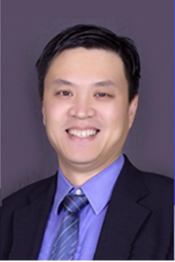
Zhang Fumin
Zhang Fumin received his bachelor’s and master’s degrees from EEA, Tsinghua University in 1995 and 1998, respectively. In 2004, he earned his Ph.D. in electrical engineering from the University of Maryland, College Park, USA. He is currently a chair professor in the Department of Electronic and Computer Engineering and the Director of the Chow Yuk Ho Technology Centre for Innovative Medicine at the Hong Kong University of Science and Technology. His research interests include mobile sensor networks, marine robots, theoretical foundations of control systems, and information-physical systems. The election acknowledges his contributions to autonomy in robot sensor networks and control of marine robots.
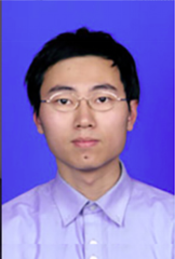
Zhang Di
Zhang Di obtained his bachelor’s and master’s degrees from EEA, Tsinghua University in 2004 and 2006, respectively. In 2010, he earned his Ph.D. in electrical engineering from Virginia Tech in the United States. He is currently an associate professor in the field of electrical and computer engineering. His research interests include modeling and design of medium- and high-voltage power converters, high-performance power conversion based on SiC, and power conversion systems for power grids, renewable energy, and aviation. The election recognizes his contributions to the motor drives and circuit breakers for electric propulsion of electric aircraft.
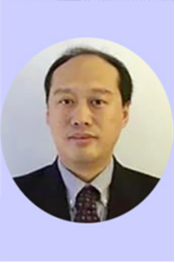
Zheng Tongxin
Zheng Tongxin obtained his bachelor’s degree from North China Electric Power University in 1993, his master’s degree from EEA, Tsinghua University in 1996, and his Ph.D. in electrical engineering from Clemson University in the United States in 1999. He is currently the Technical Director at the New England Company of the US Independent System Operator. His research focuses on power system operation, optimization, and power market design. He has participated in the reform of the power system in the New England region and served as the President of the North American Chinese Power Association from 2016 to 2017. The election acknowledges his contributions to power market design and operational methods.
IEEE is an international society for electronics and information science and engineering professionals, established in 1963 and headquartered in New York City, USA. IEEE has more than 420,000 members and 39 professional societies in over 160 countries, leading the latest developments in technology fields such as signal and information processing, power, electronics, computing, communications, control, remote sensing, biomedical engineering, intelligent transportation, and space.
The IEEE Fellow is the highest grade of membership awarded by the IEEE and is the highest honor bestowed by the organization. Each year, approximately 300 IEEE Fellows are selected by peer experts from among members with senior or life status. Elected individuals must have made significant contributions to the progress or application of engineering science and technology, bringing significant value to society. The number of elected individuals does not exceed 1‰ of the total IEEE membership for that year. Since the number of IEEE Fellows elected each year is relatively small, the elected scientists are generally distinguished scientists who have made important achievements in the fields of science and engineering technology.

















 News & Events
News & Events